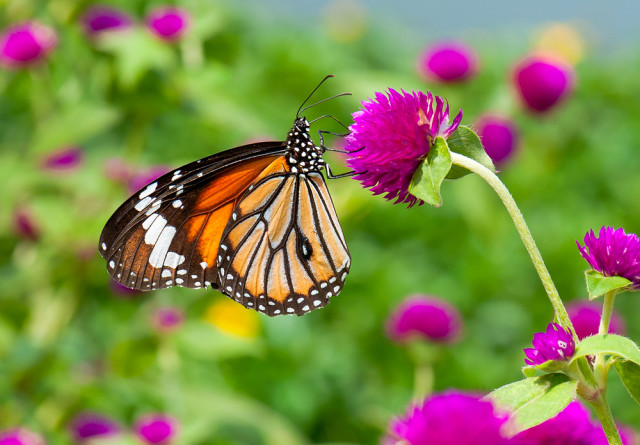
Genetically engineered crops are bad news for wildlife, humans, and the environment.
I talked about it recently with Green Diva Meg in this Green Divas Heart Wildlife episode:
LISTEN:
For decades industry has claimed that genetic engineered crops (also referred to as GE or GMO) are being developed to use less water, provide better yields, and provide an array of other benefits for humans and the environment.
But the reality on the ground is that no commercial GE crops are engineered for such traits. None.
Over five of every six acres (84 percent) of GE crops grown worldwide are engineered for herbicide-tolerance, a nice way to say they can survive being drenched with what would normally be a toxic dose of the herbicide Round-up, or glyphosate.
According to USDA figures, total glyphosate use on corn and soybeans rose from 10 million pounds annual in 1995, the year Monsanto’s Roundup Ready crops were introduced, to 204 million pounds annually in 2013, a 20-fold increase. USGS routinely finds significant levels of glyphosate in our water. There’s no question that exposure to significant levels of herbicides can adversely affect human health and the environment.

Monarch butterflies are a prime example of a species impacted by increased herbicide use.
Monarchs have declined by over 90 percent over the past two years.
In human-population terms it would be like losing every living person in the United States except those in Florida and Ohio. The butterfly’s dramatic decline is being driven by the widespread planting of genetically engineered crops in the Midwest, where most monarchs are born.
The vast majority of genetically engineered crops are made to be resistant to Monsanto’s Roundup herbicide, a uniquely potent killer of milkweed, the monarch caterpillar’s only food. The dramatic surge in Roundup use with Roundup Ready crops has virtually wiped out milkweed plants in midwestern corn and soybean fields.
Unless action is taken, monarch butterflies may well go extinct, which is why we have petitioned for monarchs to be protected under the Endangered Species Act.
For more Green Divas Heart Wildlife episodes, click here.
Bonus:
Listen to the latest full episode of The Green Divas Radio Show…
 Lori Ann Burd, Environmental Health Director, directs the Center for Biological Diversity’s efforts to protect humans and all other species from the harmful effects of toxic substances. She earned her B.A. at Colorado College and her J.D. at Lewis and Clark Law School. Before joining the Center she worked as a staff attorney and campaign manager for the Portland-based nonprofit Bark to protect forests, rivers and wildlife, then as a contract attorney for National Wildlife Federation, focusing on mountaintop-removal coal mining and tar sands pipelines, and the Center for Food Safety, where she focused on pesticides and genetic engineering. To learn more about our work and to sign up for action alerts, please go to biologicaldiversity.org.
Lori Ann Burd, Environmental Health Director, directs the Center for Biological Diversity’s efforts to protect humans and all other species from the harmful effects of toxic substances. She earned her B.A. at Colorado College and her J.D. at Lewis and Clark Law School. Before joining the Center she worked as a staff attorney and campaign manager for the Portland-based nonprofit Bark to protect forests, rivers and wildlife, then as a contract attorney for National Wildlife Federation, focusing on mountaintop-removal coal mining and tar sands pipelines, and the Center for Food Safety, where she focused on pesticides and genetic engineering. To learn more about our work and to sign up for action alerts, please go to biologicaldiversity.org.
[dynamic-sidebar id=’Custom Widget 2′]